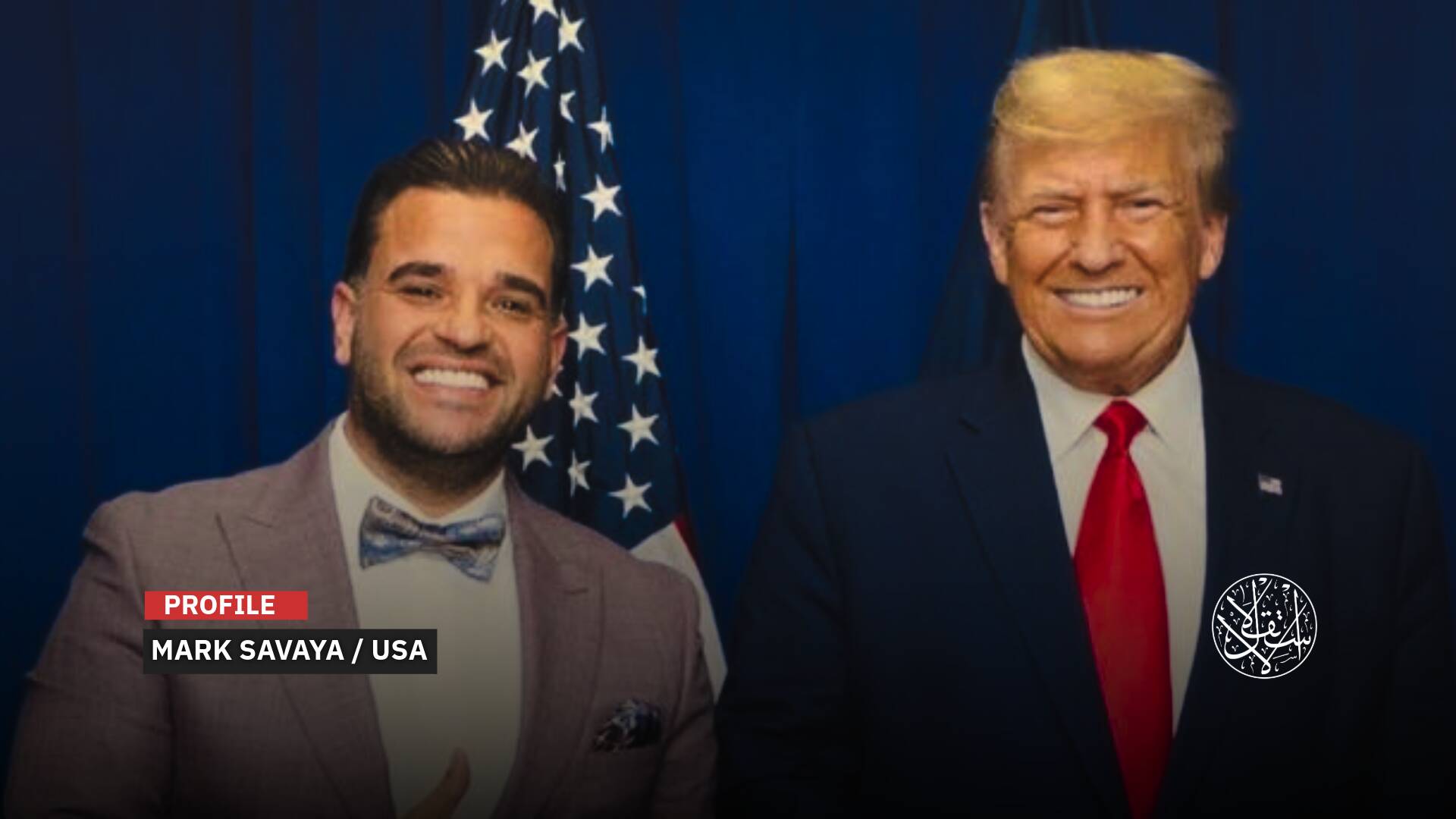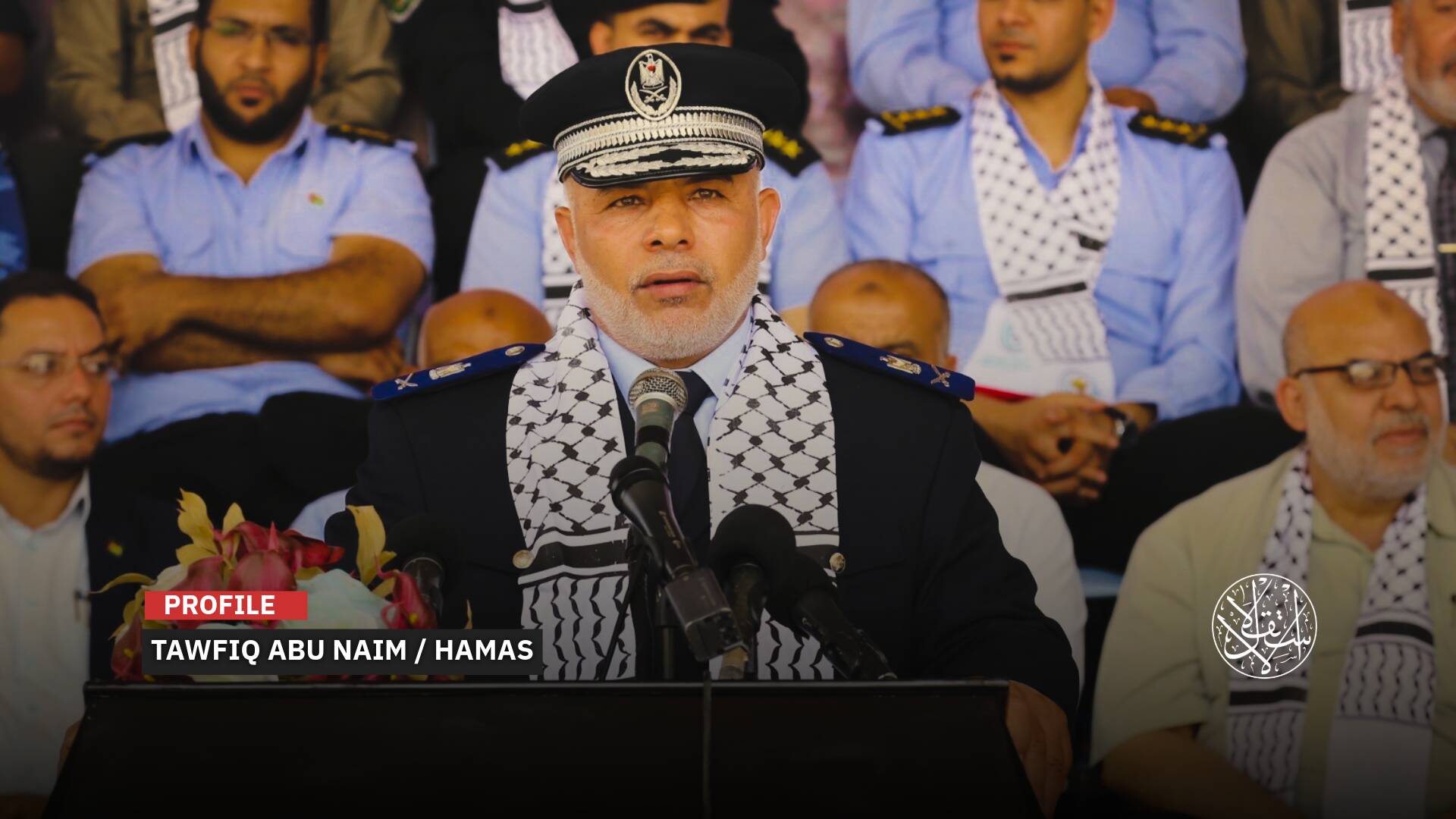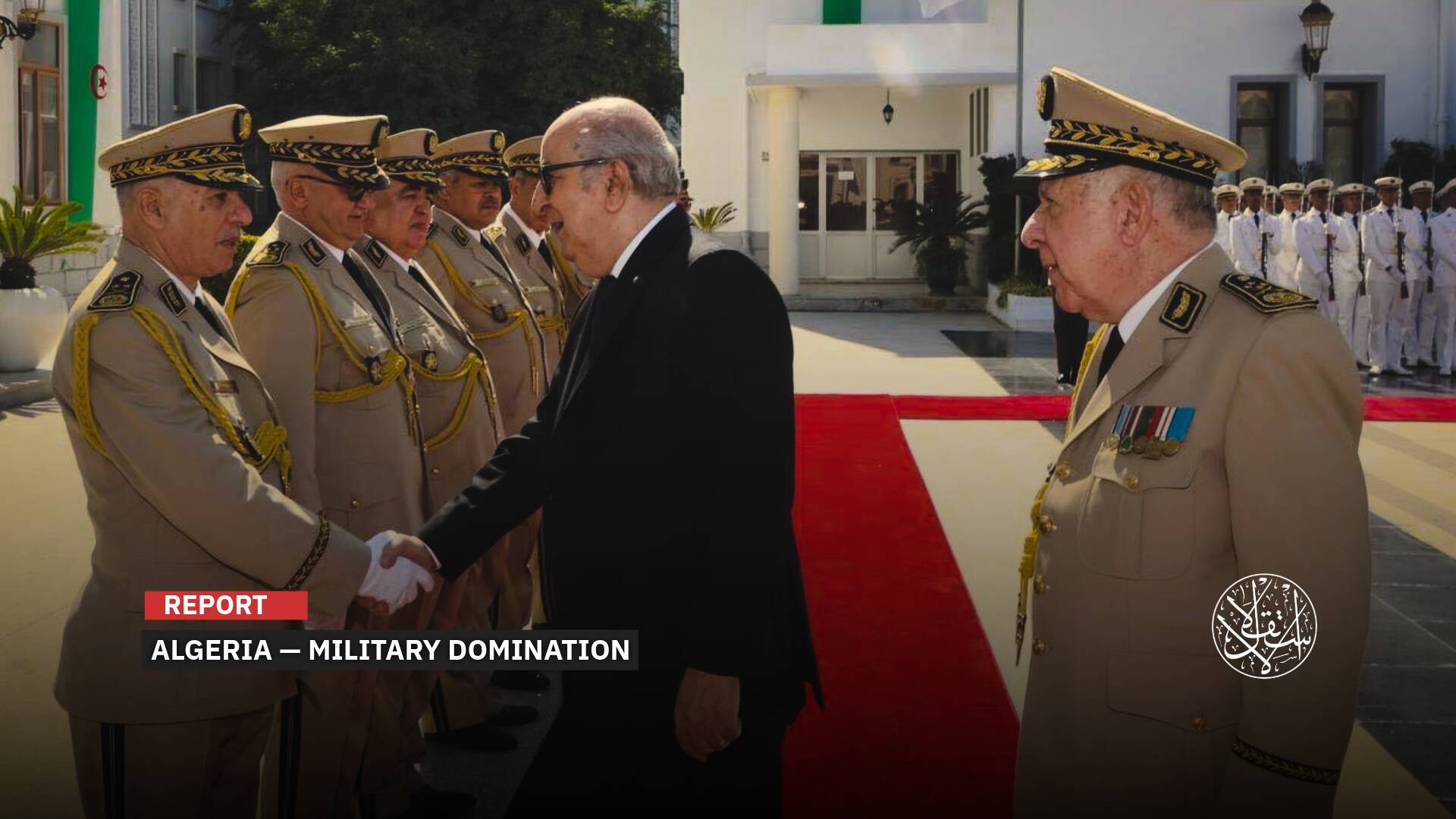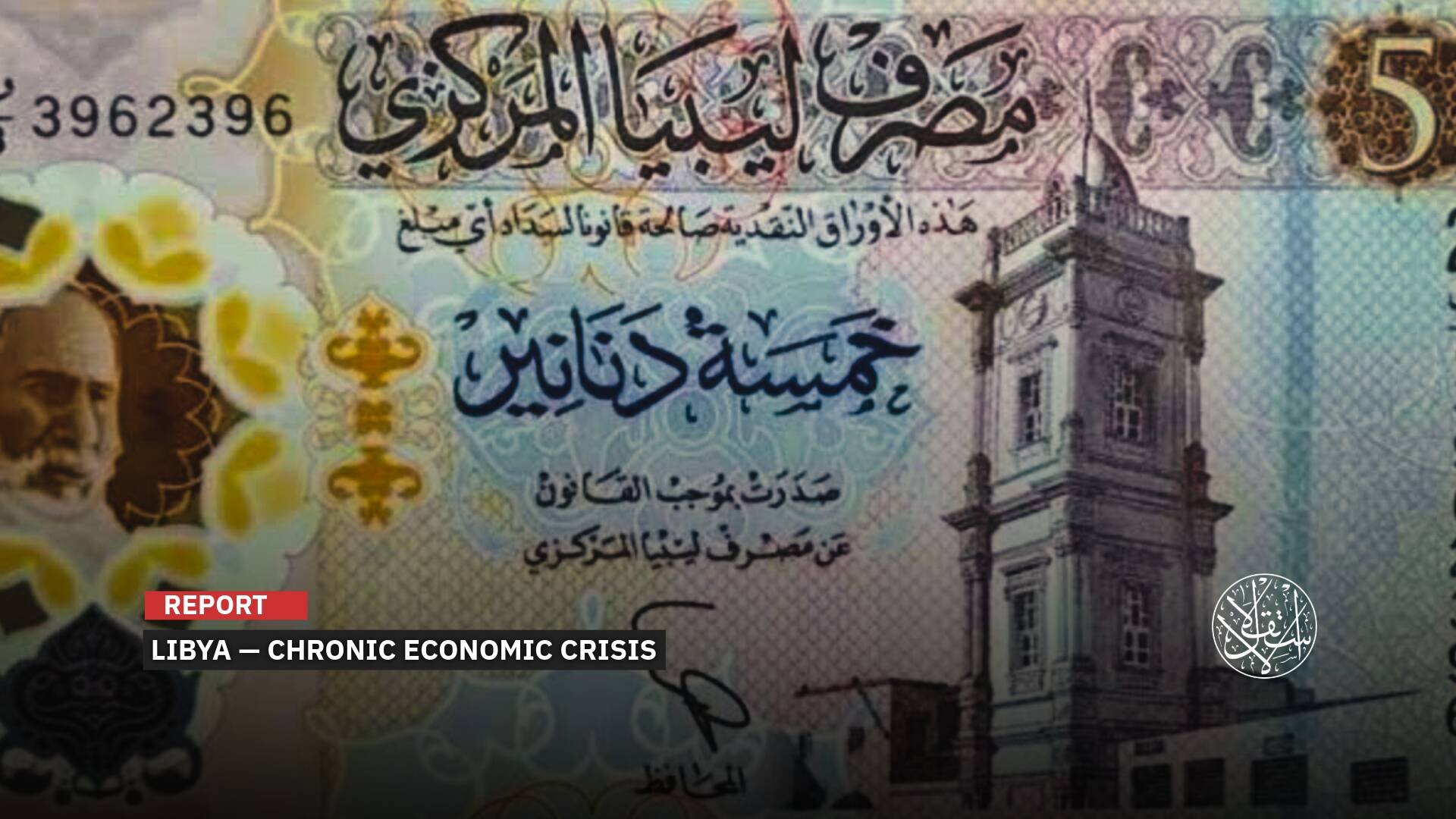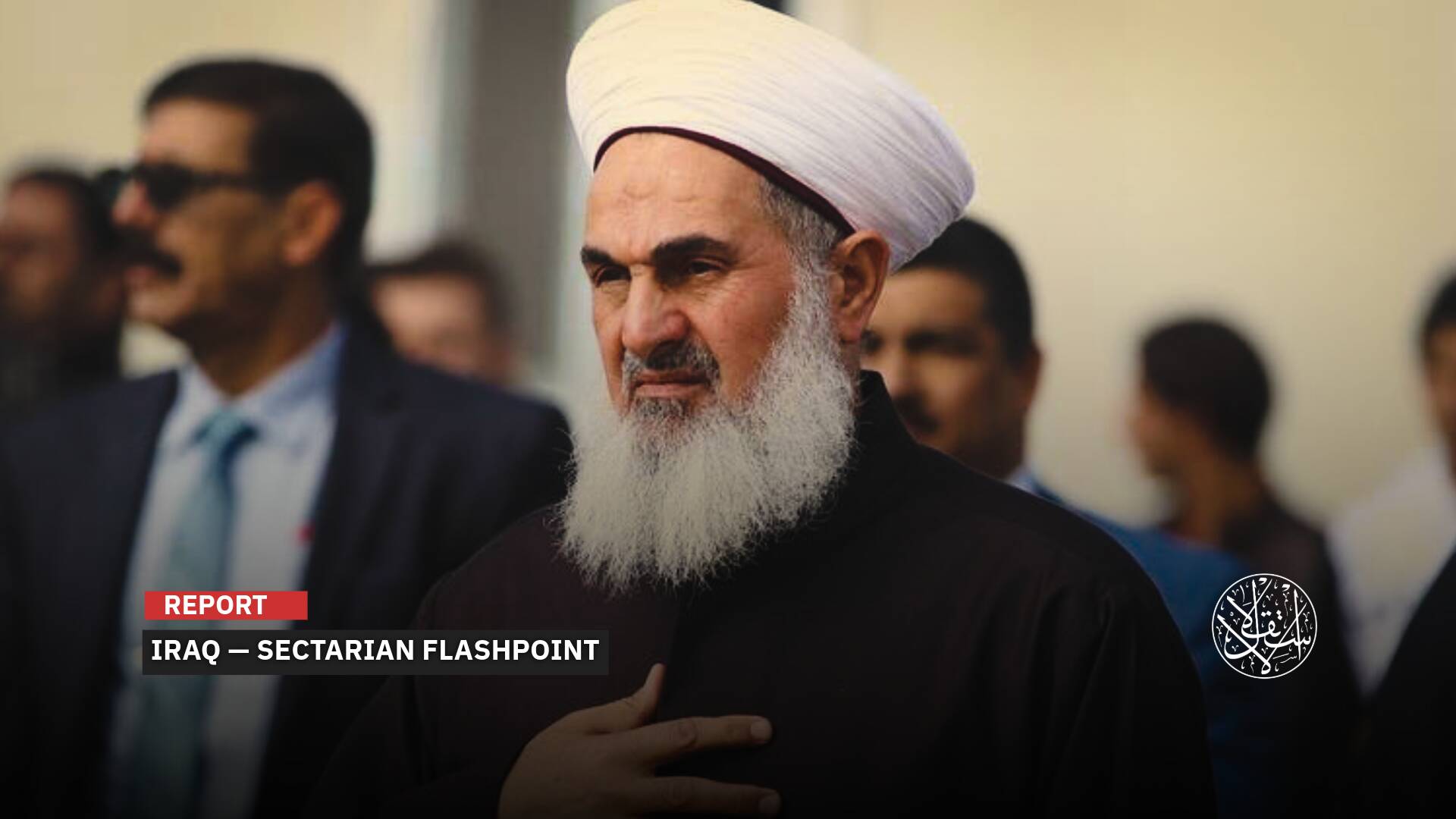Saadi Yacef; Hero and Leader of the ‘Battle of Algiers’ Against French Colonialism

Saadi Yacef, the Algerian politician and one of the most famous leaders of the National Liberation Front (FLN) during the Algerian Revolution of Independence, passed away on Friday, September 10, 2021, at the age of 93, after suffering from disease, according to official sources.
The late Yacef was one of the heroes of the resistance against French colonialism and the struggle for the independence of Algeria, and leader of the “Battle of Algiers,” which represented one of the main stations in the War of Independence (1954-1962).
Hundreds of citizens participated in Yacef's funeral to the “train” cemetery in the Algerian capital on Saturday, September 11, 2021, and in the presence of Abdul Hafeez Alahem, the personal advisor to the Algerian president, and the Minister of Strugglers, Eid Rabiqa.

Early Life and Activism
Saadi Yacef was born on January 20, 1928, in the famous Kasbah neighborhood of the Algerian capital. He received his education in the old neighborhood, which was built by the Turks until the age of fourteen, when the American and English armies occupied the school in which he was studying on November 8, 1942, and made it their headquarters. A couple of years later, Saadi decided to start work with his father in the family bakery.
At the age of seventeen, Yacef began his political activities, as he participated in the demonstrations organized by the “Algerian People's Party” on May 1, 1945, then the demonstrations of the eighth of May 1945, they are the protests that demanded France's independence, after the end of World War II.
Yacef joined the ranks of the “Special Organization,” the military wing of the “Movement for the Triumph of Democratic Liberties” in 1947, his mission was the military training of the revolutionaries of the Kasbah neighborhood.
Until the matter of the organization was discovered by France in 1950, which made Yacef emigrate to France.
After a two-year emigration to France, Yacef returned to Algeria, and began his contacts with members of “the Revolutionary Committee for Unity and Action.”
He was responsible for linking communications with the commando cells in the Kasbah neighborhood.
In 1954, the date of the outbreak of the Algerian Revolution, Saadi Yacef and a number of the leaders of the (FLN) were assigned to form a group of Fedayeen.
They were asked to focus on their commando operations in central Algiers, where the international press and the colonial official authorities reside.

Leader and Commando
During the period between 1956 and 1957, the “Battle of Algiers” began, when the French colonial army tried to regain control of the ancient city of Algiers from the Algerian Fedayeen.
Yacef was a leader of the independent region in Algeria during that phase of the war, in which the movements of the (FLN) and the French repressions intensified.
Yacef, accompanied by Hassiba Ben Bouali, Ali La Pointe, Larbi Ben Mhidi, Djamila Bouhired, Djamila Bouazza, Zohra Drif Bitat and other Fedayeen, contributed to the intensification of their commando operations against French colonialism in the capital, where they were taking refuge in the Kasbah neighborhood for them.
Yacef continued his struggle until his arrest by the Paratroopers Division on September 23, 1957, which marked the end of the Battle of Algiers, then he was tortured and sentenced to death, but the sentence was not implemented and he was released after the ceasefire.
Hero of the Movie
The world discovered “Yacef” through the movie “the Battle of Algiers,” which was produced in 1966, it was directed by Italian director “Gillo Pontecorvo,” where the late embodied his realistic role in the battle at the time.
The movie, which was banned for a long time from being shown in France, was not allowed to be shown in cinemas until 2004, because of his condemnation of the brutality of French colonialism.
The movie is ranked among the 120 best movies in the history of world revolutionary cinema, according to a poll by the English “Empire” magazine, in the same year, the movie won the “Golden Lion” at the Venice International Movie Festival.
Saadi Yacef says in his memoirs, he thought of the movie, the Battle of Algiers, while he was in prison after he was sentenced to death. During his isolation in a solitary cell, the tape of the commando operations carried out by his comrades at that time passed through his memory, as if it were a movie tape.”
“From here, the idea of the movie began to grow, which was originally a book that I wrote with others while were in exile, after (Charles de Gaulle) pardoned all those sentenced to death, I got out of prison and wrote (Memories of the Battle of Algiers), which I turned into a movie script,” Yacef adds.
In March 2019, the late Yacef participated in one of the marches against Bouteflika's candidacy for a fifth presidential term.
He addressed the Algerians and asked them, shedding tears through a video spread on social media, to continue their movement until the expulsion of what he described as garbage.

National Struggler
The French Press Agency (AFP) quoted Zefira, daughter of the late, as saying: “My father fought to the last moment of his life for Algeria to live. He also taught me all human values, he wished to be buried among his forefathers and his comrade strugglers.”
In turn, Algerian President Abdelmadjid Tebboune expressed his condolences to the families of the late struggler, in his condolence message, he said: “The late was one of the most prominent leaders of the revolution, and his brothers the strugglers made immortal features of sacrifice and heroism.”
“Yacef’s famous movie, which ranks among the most successful cinematographic works, will remain a witness to his armed struggle and his national giving,” he added.

The Minister of Strugglers, “Eid Rabiqa,” also paid tribute to the late, he described him as “the feat struggler and the fervent leader who challenged the colonizer with his armies, and he brought them down with an unrelenting will, patience, courage, and steadfastness until independence was achieved.”
“Yacef remained on the covenant in the stage of building the national state, chivalrous and faithful to the values of his homeland, keeper of the honesty of the martyrs, and defending the sacred national principles,” he added.
While the Speaker of the National Assembly, Salah Goudjil, described the late struggler as “the figure of the Battle of Algiers.”
“Algeria has lost one of the men of Algeria who served it faithfully and but they have never changed in the least,” he said.



